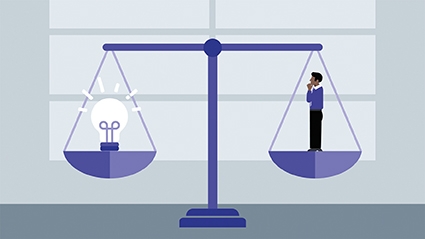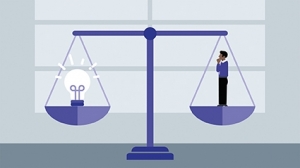The Fossilized Strata of Our Society
OP-Ed
Members of this society may conditionally fall into five main categories: BE-ers, DO-ers, HAVE-ers, USE-ers and GAZE-ers.
The job of the BE-ers is just to be out there – that’s all they have to do; they make up a strong and stable part of the system, and they do their utmost to turn themselves into indispensable participants of social and political processes; they are confident that they are very important, and they walk with a pin in the lapel and a feather in the hat; their personalities figure in the press permanently and their faces shine on the television on a regular basis; they are the country’s ubiquitous talking heads, and they believe that their word must be heard because it is the final say in the nation’s public life. The BE-ers have power and they enjoy clout; they are self-assured but they are also smart enough to know that their being a BE-er may not last forever, hence they methodically prepare themselves for their future existential comfort when their presence on the arena may lose sense; to cut it short, they know very well where they are, what they are and why they are.
The DO-ers are the people who actually do their job, having faith in their values and philosophy; they firmly stand by their morality and are always prepared to fight for those ideas no matter what the existing circumstances; they usually do what they are supposed to do; they do it well and quality is their credo; their work ethic is totally compatible with their potential to meet the bottom-line; they are like bees – productive and organized, and like aunts – carrying heavier loads on their shoulders than they weigh themselves; the DO-ers are powerful locomotives that move the country forward for real.
The HAVE-ers want to have it all; they have a finger in every pie and are ready to grab as big a chunk of those pies as possible; their main thought is concentrated on how to have it all without punishment; they have a lot and their material comfort is all they have ever dreamt of, and most importantly and luckily for them, they have found the ways of happily and imperturbably sitting on their cash bags, having an acute olfactory sense of where the danger might come from, if any at all.
Now the USE-ers! They are the most fortunate and felicitous part of the current Georgian society; they are pure survivors, magically rescuing themselves from any threat and jeopardy that life might throw at them at any unpredictable time; they just have an inborn instinct for this; the USE-ers are not simply lucky; they are auto-trained loafers who have learnt how to enjoy life without bothering themselves to even lift a finger; they have learnt the skill of running the show by using other people’s money, knowledge and talent; they just freeload and get away with it; the USE-ers are omnipresent, conquering every walk of life and every possible corner of the land; they are like cockroaches – living long, eating all and nesting everywhere.
And finally, the GAZE-ers! This is a class which just gapes at what others are doing, their eyes avid and their mouths watering; they have practically nothing: no property, no job, no money, no chance and no prospect of a good life; the GAZE-ers typically fancy leaving Georgia and settling somewhere else where they think they can be better off than here; they are waiting for some magic to happen in their life; this is a poverty-stricken category of people who are angry with the regime and with anybody around who feels and lives better; the GAZE-ers are losers and they have a habit of putting the blame for their failure on the government’s shoulders; they are also the people who are used to living in poverty, and, often, it might not be completely their fault that they are so destitute.
Conclusively, my portrayal of the system is the actual societal pattern of Georgia, within which every layer is firmly established, with strong rules that are habitual for those who have decided to stay and continue living there. It is doubtful this pattern is productive, but this society has accepted it and feels comfortable with it. If this is not true, why is nothing changing? How come the system feels so safe? How does it survive and continue working so persistently? And why is the rest of the world ready to put up with it?
By Nugzar B. Ruhadze












